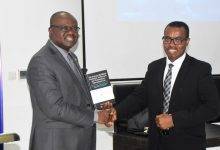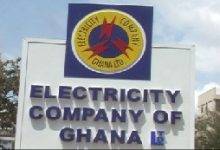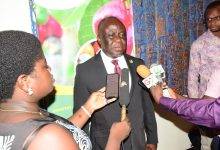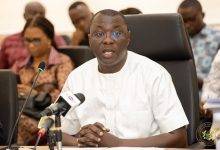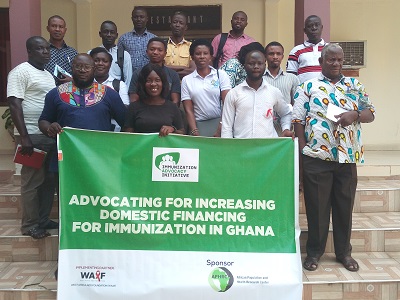
A roundtable discussion on “Immunisation Financing in Ghana” organised by the West African AIDS Foundation (WAF), an NGO dedicated to the fight against the spread of the HIV virus, has been held in Sunyani in the Bono Region.
It was aimed at primarily increasing domestic financing of health budget with prioritisation for immunisation activities.
In his presentation, the Regional Coordinator of WAF, Edward Ayabillah, noted that even though the cost of immunisation in Ghana keeps rising, there was no corresponding increase in government’s co-financing commitment to the same course.
“In a spate of two years (2017-2019), immunisation cost between $52.3 million and $55million, however, government’s expenditure between 2016 and 2017 dwindled from GH¢ 14 million to GH¢ 13 million, leaving donors to provide between GH¢ 8 million and GH¢25 million,” he said.
Unfortunately, he noted that government could not meet its commitment to co-financing vaccines with Global Alliance for Vaccines Immmunisation (GAVI) in 2016, 2018 and 2019.
Mr Ayabillah expressed the hope that the government would make adequate and sustainable budgetary provisions toward immunisation drives, and ensure that the proportion of the budget allocation to immunisation increased year-on- year.
According to him, vaccination was one of the greatest public health achievements of human history as it had led to the eradication of smallpox, near eradication of poliomyelitis and elimination of measles in several regions.
“Globally, an estimated two to three million deaths among children under five years are prevented annually through immunisation. Currently, ten vaccines are given against 14 diseases in the country,” the Regional Coordinator of WAF said.
He expressed worry about the absence of a structured training for the newly employed Expanded Programme on Immunisation (EPI) service providers, “Therefore, senior colleagues give them on-the-job training to perform their duties, which is not enough.”
A Deputy Director of Public Health at the Ghana Health Service, Dr John Ekow Otoo, added his voice on the need for the government to invest in immunisation activities to consolidate the gains being made in that area.
He said infrastructure for effective vaccination activities must be put in place from the national level to the local level, whilst effective and constant training must be given to health workers involved in immunisation exercises, especially those connected to the “cold chain”.
He also bemoaned the poor sanitary conditions of most parts of the country and called for attitudinal change, especially by Ghanaians, in order to make Ghana clean.
FROM DANIEL DZIRASAH, SUNYANI


